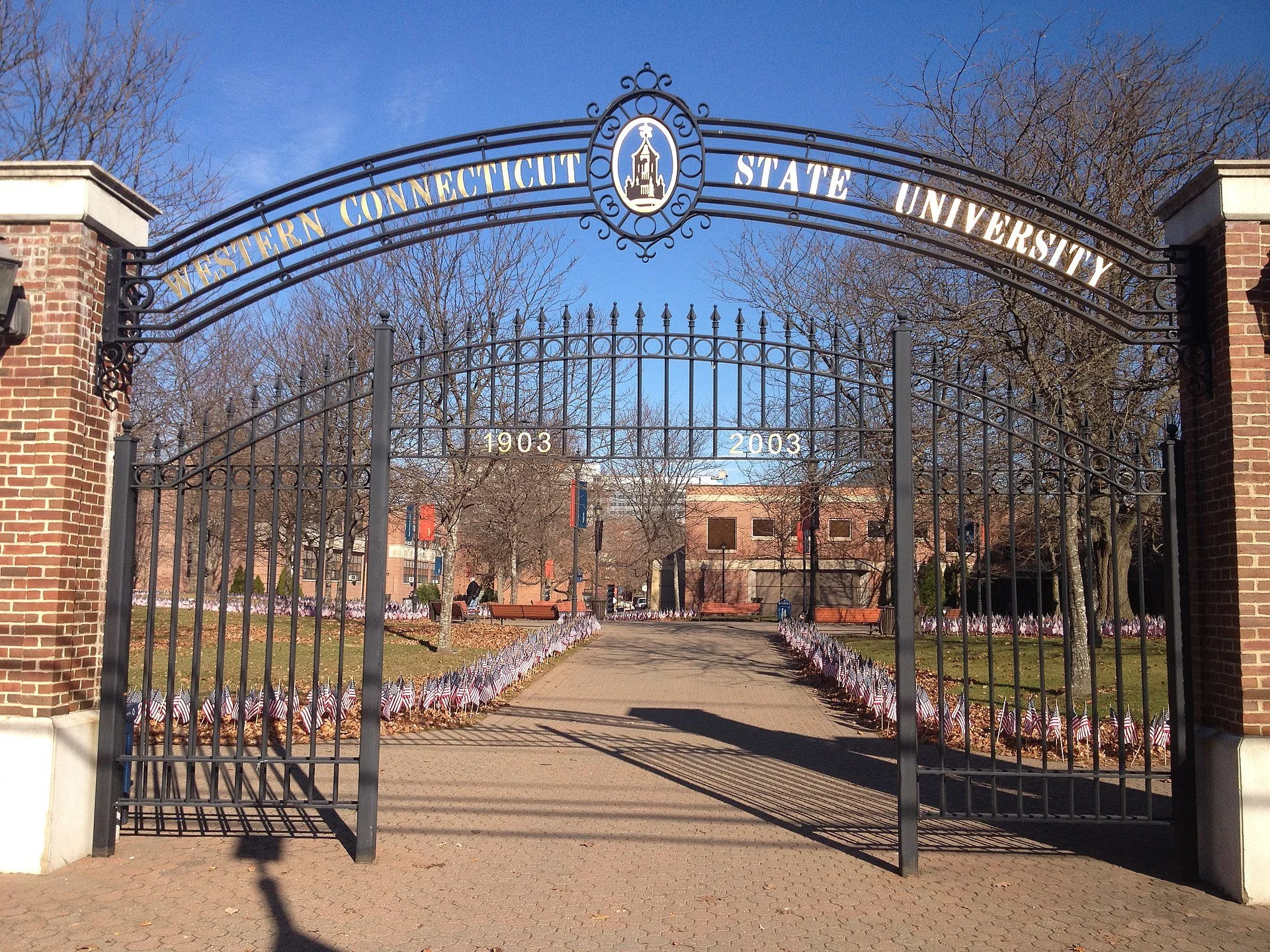The entrance gates of Western Connecticut State University, in Danbury.
— Photo by Andrew Gusciora
MANCHESTER, Conn.
Connecticut recently saw another indication that its public higher education is overpriced. To encourage applicants, the University of Connecticut and three of the four regional state universities -- Southern, Western and Eastern -- waived application fees for a day. Central Connecticut State University waived the fees for two weeks.
Of course, the savings to applicants was small -- UConn's application fee is $80 and the fee for the regional universities is $50 -- and the universities will more than recover the loss through their tuition. The regional universities are increasing tuition by 3 percent.
Meanwhile, this week courts kept thwarting President Biden's attempt to use an executive order to bestow forgiveness of college student loans. Even the president's political ally, House Speaker Nancy Pelosi, acknowledged long ago that student loans can be forgiven only through legislation. All along the president's plan seemed to have been little more than a gimmick to build support for Democrats in the recent congressional election.
The clamor for debt relief is essentially a proclamation of the excessive cost -- the lack of value -- of higher education. For the rationale for college loans is that students will be able to repay them through the higher incomes they will earn because of their higher education. But that doesn't work for millions of college students, graduates and dropouts alike. Their income expectations are disappointed and then their loan obligations crowd out family formation, home ownership and the joy of life generally.
Along these lines, the employment agency Zip Recruiter reported this month that its survey of 1,500 job-seeking college grads found that 44 percent regret their field of college study, presumably for income reasons. The fields most regretted were in the liberal arts. Least regretted were those in science, technology, medicine, and business.
Elected officials trying to pursue the public interest rather than the special interest might respond by proposing to regulate eligibility for college loans and to restrict loan terms, thus inducing colleges to cut prices and reorder their course and degree offerings in favor of the fields in which graduates will be most able to repay their loans.
Instead the response from elected officials is mainly to have government assume college loan debt and pass it along to taxpayers, including people who paid their own way through college or skipped college because of the cost -- the suckers!
Why is there such resistance to knocking down the cost of higher education? For the same reason there is such opposition to knocking down the cost of lower education even as its performance declines.
That is, too many people draw their livelihoods from the failing systems and are comfortable with failure.
Most of these people are unionized, politically active, and connected to the Democratic Party, circumstances that especially in Connecticut preclude any acknowledgment of education's excessive cost. But even in the rest of the country few Republicans want to risk the wrath of the education lobby.
Besides, how many parents want some elected official to tell them that while they were watching television or smoking dope instead of monitoring their children's homework, elementary-school students in Asia had become more educated and capable than high school graduates in the United States?
Meanwhile, The Washington Post has scolded elite universities and particularly Yale University, in New Haven, for supposedly not being supportive enough of students who suffer mental breakdowns. The schools pressure these students to withdraw and seek readmission after medical treatment or a semester or two at another institution. Since gaining admission to an elite school once is hard enough, students fear that if they withdraw for mental-health reasons their application to return may be tainted.
But universities fairly may want to avoid potential financial liability if troubled students kill themselves, as some do. Besides, if study at an elite institution is too rigorous for some students, that's what makes it elite, and no one has to enroll -- and maybe some students shouldn't.
Yale says the demand of its students for psychological counseling has exploded, reaching 34 percent against an average of 11 percent in higher education generally. This too may be a sign of lack of rigor in lower education.
Chris Powell is a columnist for the Journal Inquirer, in Manchester. (CPowell@JournalInquirer.com)




















